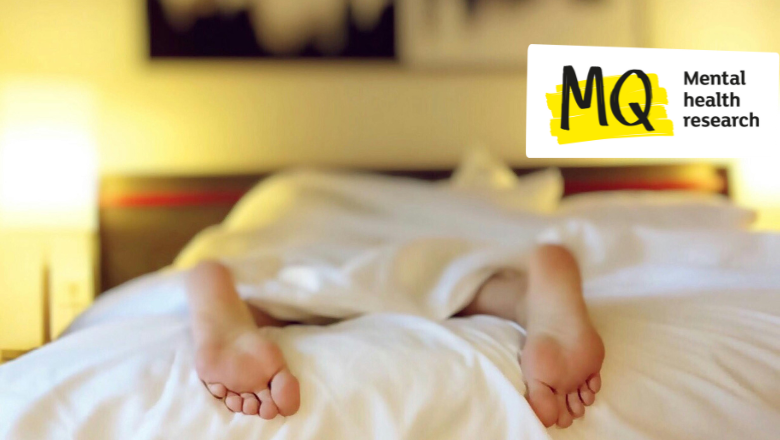This World Sleep Day (15 March 2024), we consider the powerful effects sleep and sleep quality can have on mental health.
World Sleep Day celebrates awareness of sleep health. Sleep and mental health are inextricably linked. Anyone who doesn’t sleep well for a few nights can attest to the effect it can have on mood, behaviour, thoughts and your ability to think clearly or look after yourself or others. As one of the baseline needs of humans, sleep and sleep quality can have a huge impact on mental wellbeing.
Issues with sleep can also be a symptom of mental illness. People with depression may be prone to sleep for longer and still feel very tired, not sleep much at all or struggle to get to sleep. Those with poor quality of sleep may have lower quality of overall health, including mental health.
A Good Night’s Sleep Is Good For Us All
Sleep is a biological necessity, and insufficient sleep has a huge impact on health, well-being and public safety. Poor quality of sleep may have an adverse effect on our performance at work and our physical health. Not enough sleep can also increase stress responses in the brain. However, young people could be less likely to experience a negative impact of sleep deprivation.
In the past, major industrial disasters such as the Exxon Valdez oil spill were linked to inadequate sleep. A lot of research was conducted as a response. Despite this effort, inadequate sleep due to sleep disorders, work schedules, and chaotic lifestyles is still not as understood, prevented or treated as it could be and continues to threaten both public health and safety.
There is a need globally, therefore, for greater emphasis on sleep health in education, clinical practice, inpatient and long-term care, public health promotion, and the workplace. And of course there is a need for more research into sleep health.
Lack of Sleep is a Global Epidemic
The need for good sleep is a global problem in modern life and has a significant health impact. Good sleep is important for good physical and mental health and quality of life. But our modern 24 hour society with constant access to information and stimulation might be contributing to insufficient sleep. There is considerable evidence that insufficient sleep causes a lot of adverse medical and mental anomalies.
Globally, insufficient sleep is widespread across all age groups. This is seen as a public health epidemic that is often unrecognised, under-reported, and that has big economic costs. Insufficient sleep leads to our body not working as it should, which in turn leads to increased prevalence of illness of the heart, increased chances of diabetes, obesity, problems with cognitive functions, traffic and workplace accidents.
Lack of sleep may also contribute to weight gain in young people and a rise in depressive symptoms. Adolescents with insufficient sleep are more likely to be overweight and more likely to experience symptoms of depression.
Sleep disruption can be caused by many things from lifestyle and environment to sleep disorders and medical conditions. Some research suggests avoiding nicotine or caffeine can help improve quality of sleep as well as having a positive relaxing ritual for bedtime. Other findings suggest that there’s no real correlation between where people live, sleep or even how much tea they drink and their sleep quality. Improving our quality of sleep may take some self-reflection, experimentation and time.
Whatever the cause, the effects of sleep deprivation both short term and long term can be significant. Short term health is impacted by lack of sleep, increasing nervous system activity, affecting metabolism, increasing inflammation and more. Stress, muscular pain, emotional distress all increase with reduced sleep and brain function is reduced. Long term consequences include hypertension, heart problems, weight problems and much more.
For some people sleep deprivation can become acute. Acute sleep deprivation can have serious consequences including significant impact on neurobehavioral function. For young people chronic sleep deprivation impacts their developing brain even more but the associated neurobehavioral functions in young adults requires further research.
Can We Really Sleep It Off?
While a good night’s sleep can help our physical and mental health, it is not a cure for mental illnesses. Mental illness is not caused purely by poor sleep quality nor can it be resolved by only improving sleep. Dismissing mental health conditions as something to be cured by “sleeping it off” or “it’ll feel better in the morning” might further exacerbate feelings of alienation, isolation and loneliness. It’s important to always take mental health conditions and mental health crises seriously if anyone, yourself included, is in distress.
However, like with many contributing factors to mental illness, reducing stress consistently can improve mental well-being and a consistent good quality of sleep can aid this. But managing our stress levels doesn’t automatically eradicate our genetic predisposition to mental illness, other biological mechanisms or our life circumstances that can contribute to the overwhelming thoughts and feelings of someone seriously struggling with mental ill health.
So good quality of sleep can, over a longer period of time, support mental wellness and reduce some of the risk factors associated with developing a mental illness. Therefore, ongoing poor quality of sleep can have a negative impact and cumulatively may be detrimental to mental health.
One reason for this might be because sleep can help us process memories and particularly emotional-memory processing. This is only done during rapid eye movement (REM) sleep, which occurs usually during deeper sleeps.
Improving our quality of sleep vastly improves our mental health. Improving sleep can have a moderate or significant improvement on mental health by decreasing depression, anxiety and rumination. It can improve stress and psychosis symptoms too. Greater improvements to sleep quality lead to greater improvements to mental health and lack of sleep or poor quality of sleep can directly cause mental health difficulties.
Interestingly, there is a stronger relationship between sleep quality and mental health than between sleep quality and physical health.
Early Nights Or Lie Ins – How Much Is Enough?
How much sleep is enough sleep? This hotly debated question is a hard one to answer as, like so much when it comes to health and mental health in particular, one size does not fit all and one size does not fit one person forever.
Some people may find 8 to 10 hours of sleep works best for them, but some find 6 to 7 hours of sleep works better. Generally, 7 to 9 hours of sleep for adults is currently advisable and 9 to 11 hours of sleep a night for children and teenagers.
Women do need more sleep than men but only 11 minutes more. Women are more likely to experience more sleep-related problems and women do fall asleep faster than men. Women also spend more time in deep sleep suggesting they need more restoration from sleep than men. Menstruation, menopause, pregnancy and hormones and other experiences will affect a woman’s need for sleep more than fluctuations men may experience.
Overall, our needs regarding sleep can be very personal, very changeable and while sleep is important, it is likely not as important as eating well and physical activity when it comes to creating a healthy lifestyle. This may be because, like with many things regarding health, a domino effect can occur. One aspect impacts another. If we exercise, we may be more likely to eat well or sleep well. If we eat well we may be more likely to exercise and sleep well. But perhaps sleeping well doesn’t have as much of a causal effect on the other components of a healthier lifestyle.
Ultimately, looking after our mental and physical health is a holistic effort, which includes our sleep health.



